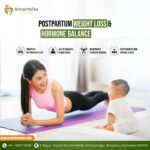
Elderly Nutrition Consultant in Bangalore
Smartbite: Nourishing Health in the Golden Years
Aging is inevitable, but how we age is largely influenced by the choices we make—starting with nutrition. Elderly Nutrition focuses on meeting the unique dietary needs of older adults to promote strength, mobility, and independence. It’s about ensuring that the golden years are truly golden, filled with vitality and well-being.
Why Nutrition Matters More Than Ever
As we age, our bodies undergo significant changes that alter our nutritional requirements. Factors like reduced metabolism, declining muscle mass (sarcopenia), decreased absorption of certain nutrients, and the increased risk of chronic conditions make a balanced diet crucial. Proper nutrition in elderly individuals plays a pivotal role in maintaining health and quality of life. Specifically, it helps:
- Enhance energy levels for daily activities: Staying active is vital for maintaining independence. Proper nutrition provides the fuel needed for everyday tasks, hobbies, and social engagements.
- Support cognitive function and memory: The brain requires specific nutrients to function optimally. A balanced diet can help protect against cognitive decline and support memory retention.
- Improve bone health and prevent fractures: Osteoporosis is a common concern among older adults. Adequate calcium and vitamin D intake are essential for maintaining bone density and reducing the risk of falls and fractures.
- Manage chronic diseases like diabetes or heart conditions: Many older adults manage chronic conditions through diet. Tailored nutrition plans can help regulate blood sugar, lower cholesterol, and manage blood pressure.
- Boost overall immunity and recovery: As we age, our immune systems can weaken, making us more susceptible to infections. Proper nutrition strengthens the immune system and supports faster recovery from illnesses.
- Maintain muscle mass and strength: Adequate protein intake, paired with light exercise, can help combat sarcopenia, allowing elderly adults to remain mobile and independent.
- Promote healthy digestion: Digestive systems often slow down with age. High-fiber foods, and adequate hydration, support healthy digestion.
Our Elderly Nutrition Approach
We prioritize simplicity, practicality, and enjoyment in our Elderly Nutrition programs. We understand that dietary changes can be challenging, so we focus on creating sustainable habits. Here’s how we make a difference:
- Nutrient-rich meals: We focus on whole foods that provide essential vitamins, minerals, and antioxidants. From calcium-rich dairy and leafy greens for bone health to antioxidant-packed fruits and vegetables for immunity, we ensure meals are nutritionally dense.
- Tailored Meal Plans: Our registered dietitians create personalized meal plans that consider individual health conditions, dietary preferences, and lifestyle. We provide easy-to-follow recipes and practical tips for meal preparation.
- Support for Caregivers: We recognize the crucial role of caregivers in ensuring proper nutrition for older adults. We offer guidance on meal planning, food preparation, and strategies for encouraging healthy eating habits.
- Focus on Hydration: Dehydration is a common issue among older adults, often due to a decreased sense of thirst. We emphasize the importance of staying hydrated by providing tips for increasing fluid intake throughout the day.
- Addressing Specific Dietary Needs: We are prepared to work with specific dietary restrictions, like low sodium, or diabetic-friendly diets.
- Promoting Social Eating: We encourage eating in a social setting when possible, as this can increase enjoyment and improve appetite.
- Education on Food Interactions: Many elderly adults take multiple medications, which can interact with certain foods. We provide education on potential food-drug interactions.
By focusing on these key areas, we empower older adults to take control of their health and enjoy a vibrant and fulfilling life.
Elderly Nutrition in Yelenahalli Elderly Nutrition in Arakere Elderly Nutrition in Hulimavu Elderly Nutrition in Gottigere Elderly Nutrition in BTM Layout



